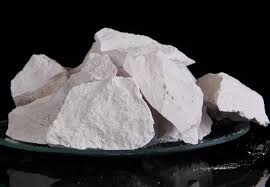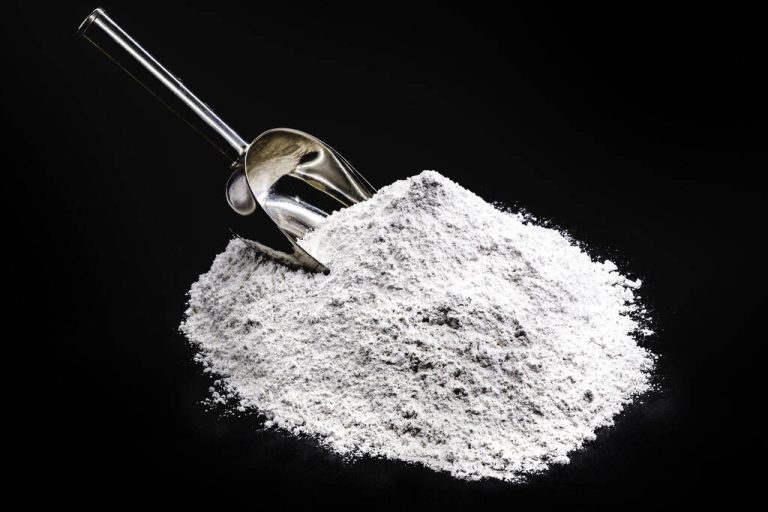Calcium sulphate is a versatile additive in food, in the construction industry and in medicine. We explain to you what it can do and whether it is dangerous to your health.
Calcium sulfate (E 516) is a chemical compound of calcium and sulfur (CaSO4) that is used as an additive in the food industry, among other things. Calcium sulfate is a natural component of food that is added to other foods.
Calcium sulphate is necessary to make gypsum. Calcium sulphate is therefore also an important substance in the construction industry.

There is not a large production of calcium sulphate, as the substance is a by-product in industry:
As a by-product in the production of tartaric acid (contained in grapes and in wine, also known as an additive under E 334)
In the production of citric acid (contained in various citrus fruits, known as E 330)
As a dihydrate (gypsum) in wastewater treatment processes (part of the “hardness” in calcareous, hard water)
Calcium sulphate (E516) and its uses
Uses in the food industry:
Baking mixes: Here, the calcium sulphate has the task of an acidity regulator, stabilizer and firming agent for the dough. It also promotes the proliferation of yeast cultures in bread.
Canned: Again, it acts as a firming agent for tomatoes, potatoes, carrots, beans, and peppers.
It is a carrier, for example for food coloring.
Tofu: Calcium sulfate is often used as a coagulant for tofu and makes it sliceable. Meanwhile, many manufacturers also use Epsom salt or Kombucha mushroom.
Dietary supplements: Some industrial foods – especially those for children – advertise as “extra calcium”. Since the body absorbs calcium sulfate very easily, many manufacturers add it to foods such as cornflakes. It’s a good source of calcium. Nevertheless, many of these industrial foods are not healthy because they contain a lot of sugar and other unhealthy additives.
Further use:
Building Materials Sector: Calcium sulphate is an important raw material in the construction industry as it becomes gypsum in its water crystalline form. Areas of application include the production and processing of tiles, plaster, plasterboard and stucco.
Drying agent in chemical laboratories: Since it is very inexpensive and versatile, it is used to dry organic solvents.
Medicine & Periodontology: Calcium sulphate has long been used in dentistry and jaw surgery to regenerate bone and tissue. With its help, sinus lifts can be carried out and dental implants inserted.

